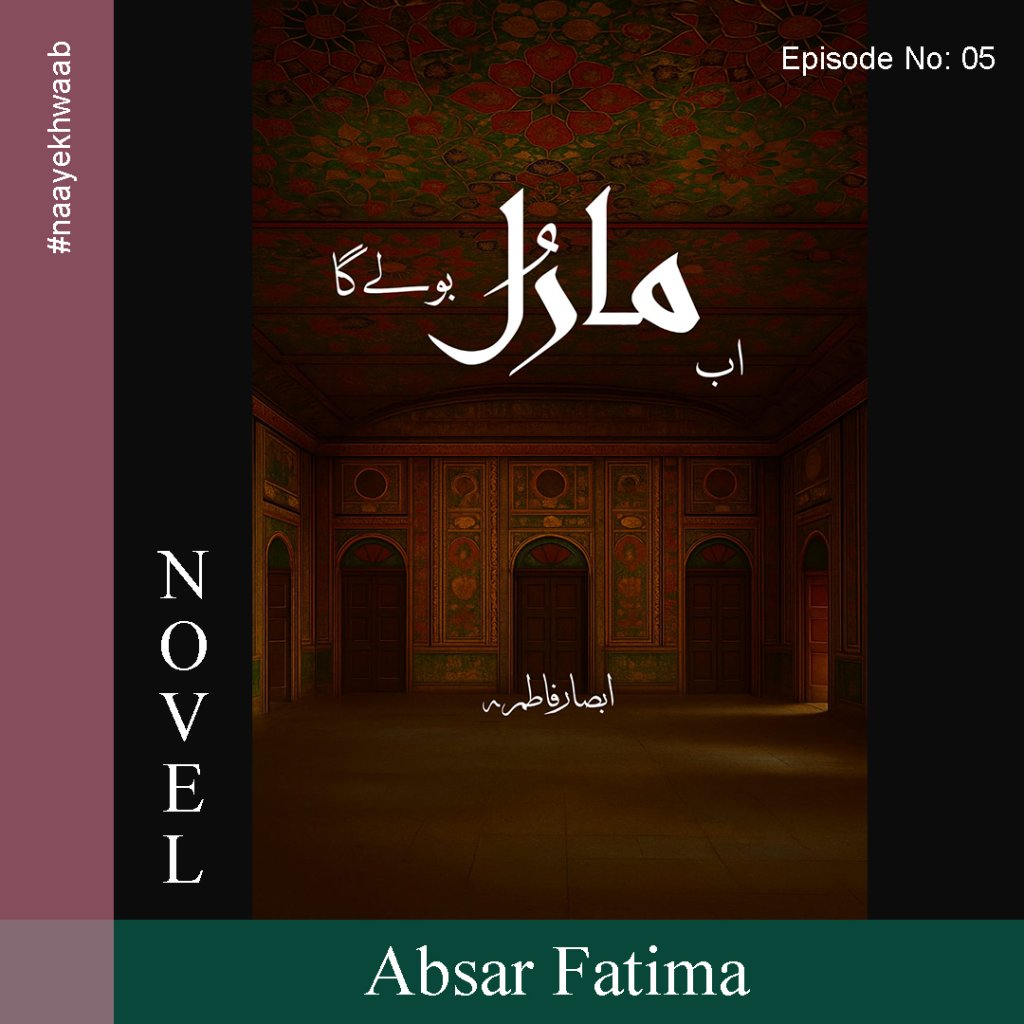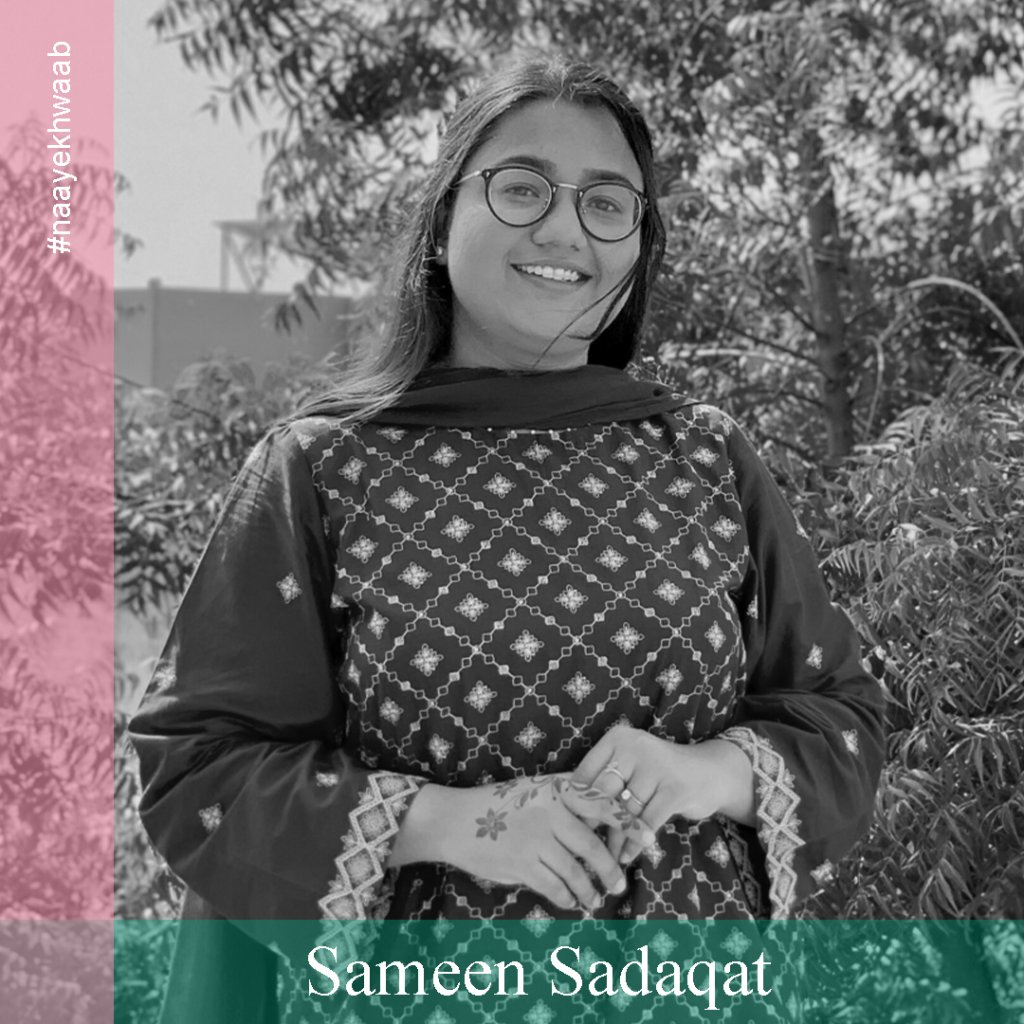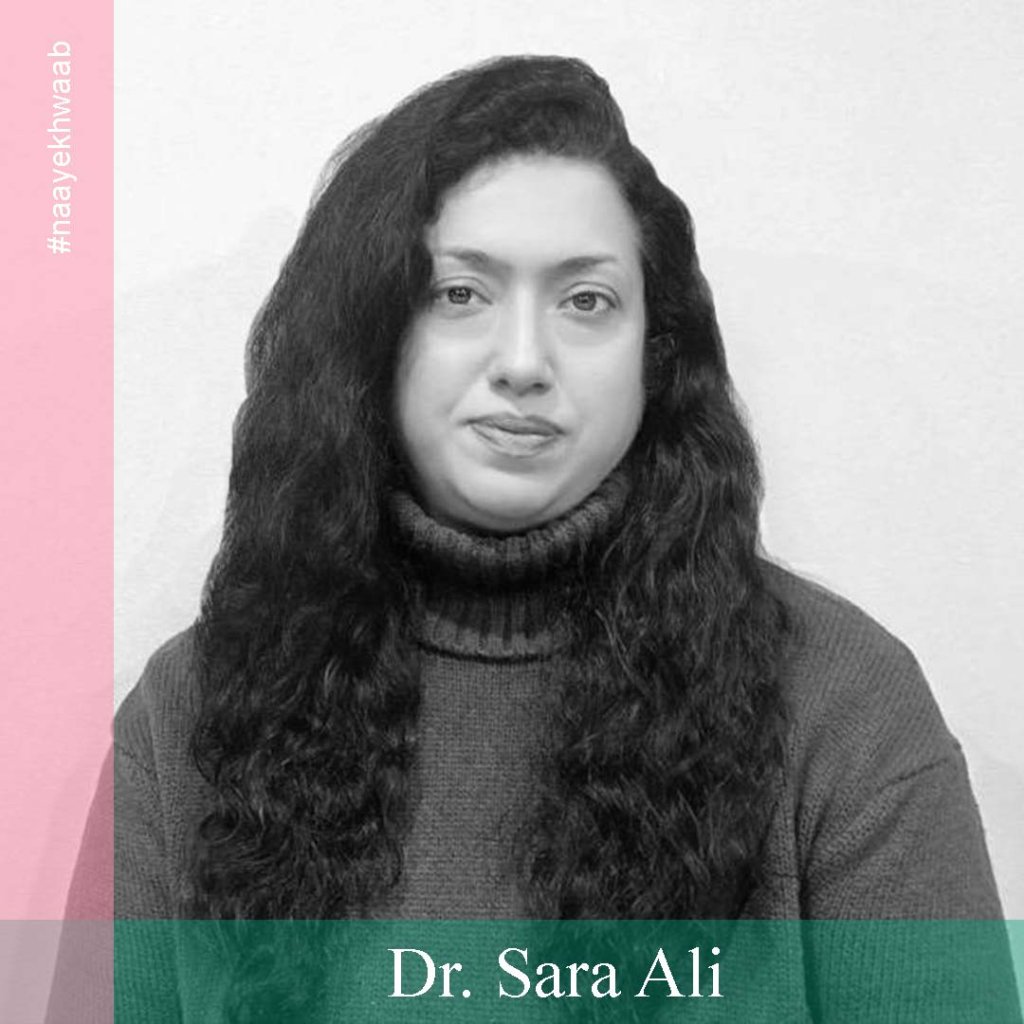اب مارل بولے گا قسط 5
اب مارل بولے گا قسط 5 مارل تاریک کمرے کے کونے میں اپنے بستر پہ لیٹا خلاء میں دیکھے جارہا تھا۔ پورے دن جو جو اس پہ گزرا سب کچھ نظروں کے سامنے بار بار چل رہا تھا۔ وہ شدید تھکا ہوا تھا۔ آنکھیں جل رہی تھیں مگر وہ سونا نہیں چاہتا تھا۔ بہت دیر تک نیند سے لڑتے لڑتے تھک گیا اور اسے پتا ہی نہیں چلا کب اس کی آنکھیں بند ہوگئیں۔ آنکھیں بند ہوتے ہی دماغ میں چلتے عکس اور واضح ہوگئے۔ جیسے وہ سب دوبارہ ہورہا ہو۔ حاکم سائیں کے ہاتھ نے اس کے منہ اور ناک کو یوں ڈھانکا ہوا تھا کہ اس کی سانسیں مشکل سے چل رہی تھیں۔ گھٹن بڑھتی جارہی تھی۔ اور پھر ہوتے ہوتے وہ گھٹن اتنی بڑھ گئی کہ یک لخت اس کی آنکھ کھل گئی۔ اس کا دل تیزی سے دھڑک رہا تھا۔ پورا جسم پسینے سے بھیگا ہوا تھا اور مسلسل کپکپا رہا تھا۔ اس کا جاگنا سونا اسی ایک اذیت کے گرد گھومتے رہتے تھے۔ دن میں گزارے اذیت کے چند لمحے پوری رات خوابوں پہ حاوی رہتے۔ اس کی آنکھیں لال رہنے لگی تھیں۔ چہرے پہ نقاہت چھائی رہتی تھی۔ مگر اس کی حالت دیکھ کر پریشان ہونے والا اس کے پاس کوئی نہیں تھا۔ ـ ————- فرزانہ کو اب جاکر وہ خوشی اور اطمینان محسوس ہونے لگا تھا جس کا اس نے نور علی کے ساتھ تصور کیا تھا۔ آفس سے آکر چائے پیتے ہوئے دنیا جہان کی باتیں کرنا، کبھی ساتھی کام کرنے والوں کی غیبتیں، کبھی نظام کی خرابیاں کبھی معاشی مسائل اور مہنگائی پہ تبصرے جو اکثر بیچ میں ہی کہیں رہ جاتے اور دونوں ایک دوسرے کے لمس کی نئی نئی جہتیں دریافت کرنے میں مگن ہوجاتے۔ مگر ہفتہ اتوار آتے ہی اس میں چھوٹا سا وقفہ آیا۔ شادی سے پہلے نور علی کا معمول رہا تھا کہ وہ مہینے کے دو ویک اینڈز گاؤں میں گزارتا تھا ہفتہ اتوار تو چھٹی ہوتی ہی تھی وہ جمعے کی بھی کرلیا تھا تھا۔ اس بار ایک ہفتہ تو ان کی شادی کا ہنگامہ رہا اگلے ہفتے تک امی اور تائی یہیں تھیں۔ لہٰذا اس دفعہ ہر حال میں جانا ضروری تھا۔ فرزانہ ذہنی طور پہ تیار تھی کہ یہ اس کا سسرال میں پہلا قیام ہوگا جمعرات کو آفس سے آتے ہی نور علی کو چائے دے کر وہ کمرے میں چلی گئی تاکہ لے جانے والے کپڑے نکال سکے۔ پہلے تو کچھ کپڑے بیڈ پہ رکھ کے تجزیہ کرتی رہی کہ کون سا جوڑا لے جانا مناسب لگے گا پھر سوچا نور علی شاید بہتر مشورہ دے دے۔ اسے فرزانہ کی شخصیت کا بھی اندازہ ہے اور اپنے گھر والوں کی پسند نہ پسند کا بھی۔ فرزانہ کے آواز دینے پہ نور علی چائے کا کپ ہاتھ میں لیے کمرے میں آگیا۔ دروازے سے اندر آتے ہوئے بھنوؤں کو سوالیہ انداز میں خفیف سے اچکایا۔” یار بتاؤ ناں کون سا سوٹ لے کر جانا ہے۔” ” کہاں” ” گوٹھ جانا ہے ناں۔” ” آج تھوڑی جانا ہے۔ کل جاؤں گا۔” “جاؤں گا کیوں؟ میں بھی تو چلوں گی۔” فرزانہ کے لیے نور کا صرف اپنے لیے کہنا غیر متوقع تھا۔ “تمہارے چلنے کی تو بات ہی نہیں ہوئی تھی۔ نہ میں نے ابھی وہاں بتایا ہے کہ تم آؤ گی۔” “یہ کیا بات ہوئی۔ اب شادی ہوگئی ہے تو میں بھی تو جایا کروں گی ناں وہاں یہ کوئی الگ سے بتانے کی بات ہے۔” فرزانہ تھوڑی چڑ گئی” ہاں کم از کم پہلی دفعہ جانے پہ تو الگ سے بتانے کی بات ہی ہے۔ وہاں سارے مائٹر (رشتہ دار) دعوت وغیرہ رکھیں گے۔ اماں وڈی نے خیرات اور میلاد وغیرہ رکھنے کا کہا ہے تو انہیں کچھ دن پہلے سے بتانا ہوگا۔ عید پہ چلنا تو چھٹی زیادہ لے کر چلیں گے۔ یہ سارے کام نمٹا لیں گے۔” “یعنی یہ پہلے سے طے تھا؟ اور تم نے مجھے بتانے کی زحمت بھی نہیں کی۔” “مجھے اندازہ نہیں تھا کہ تم اتنی جلدی وہاں جانے کے لیے ذہنی طور پہ تیار ہوگی۔ ابھی ہمیں ایک دوسرے کے ساتھ بھی زیادہ وقت نہیں ملا۔ ان لوگوں کو بھی تم زیادہ سمجھ نہیں پائیں۔ مجھے لگا تم بھی ابھی شاید نہ جانا چاہو۔” “خود ہی میری طرف سے اندازے لگا لیے۔ یہ کیا بات ہوئی۔” ” نہیں یار اندازہ لگانے کی بات ہی نہیں۔ تمہاری کسی بات سے اندازہ بھی تو نہیں ہوا تھا کہ تم جانا چاہ رہی ہو۔ آج تم نے بات کی تو میں نے بھی بتادیا۔ خود سے میں کہنا نہیں چاہتا تھا کہ تمہیں یہ نہ لگے کہ میں زبردستی تم پہ ملنے ملانے کے لیے دباؤ ڈال رہا ہوں۔” نور علی کی بات مناسب بھی تھی اور لہجہ بھی سادہ تھا اس کے باوجود فرزانہ کو اچھا نہیں لگا۔ کچھ ایسا محسوس ہوا جیسے نور علی اپنے گھر والوں کے کہنے پہ اسے گاؤں نہیں لے جارہا۔ ” خیرات اور میلاد کرنی ہے یا ایک ‘دھاری’ کو وہ لوگ خاندان میں شامل نہیں کرنا چاہتے۔” لاشعور میں دبا یہ لفظ نہ چاہتے ہوئے بھی ایک دم اس کی زبان پہ آگیا۔ “تمہیں کس نے کہا” نور علی کا لہجہ کسی قدر جارحانہ ہوگیا۔” براہ راست تو مجھے نہیں کہا لیکن کئی دفعہ اپنے متعلق بات چیت میں یہ لفظ اپنے حوالے سے سننے میں آیا۔” ” اوہ اچھا، تو اس میں برا ماننے والی کیا بات ہے؟” پھر کچھ سوچ کے پوچھا۔ ” تمہیں دھاری کے معنی پتا ہیں؟” “نہیں، اور مسئلہ لفظی معنی میں نہیں ان کے لہجوں میں ہے جیسے دھاری کوئی بہت بری عورت ہوتی ہے۔” ” ارے یار کوئی بری عورت نہیں ہوتی سادہ سا لفظ ہے دھار یعنی الگ اس سے دھاری یعنی الگ خاندان کی، اس حساب سے میری امی بھی دھاری ہیں۔ کیوں کہ میرے والد سے ان کا نکاح عوض میں ہوا تھا میرا ننھیال بھی ادھر کا ہی ہے لیکن ذات الگ ہے۔” پھر وہ اس کے قریب آگیا نرمی سے کپڑے لے کر ایک طرف رکھے اور پیچھے سے اس کے شانوں پہ بازو پھیلا کر ساتھ بیڈ پہ بٹھا لیا۔ “فئیری دیکھو، سو فیصد سب



